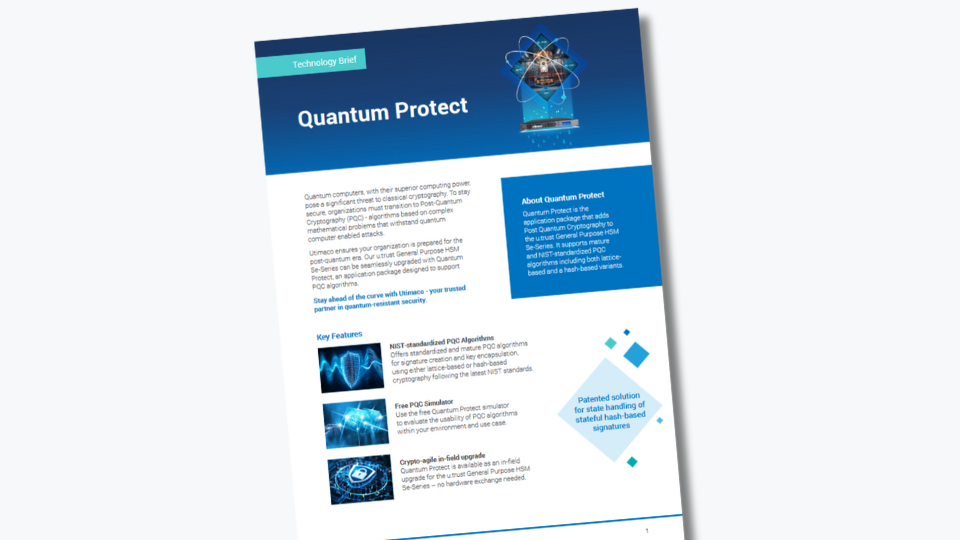Quantum computing has emerged as a game-changing technology with the potential to revolutionize various industries.
In this sequel to our previous article on quantum computing in the banking, manufacturing and IoT industry, we shift our focus to the energy and utilities sector, exploring the opportunities quantum computing presents and the challenges it delivers.
As the energy industry faces increased demand for clean and sustainable energy solutions, quantum computing has the potential to play a pivotal role in optimizing power systems, improving energy distribution, reducing emissions, and enhancing the efficiency of renewable energy sources.
What is the Energy and Utilities Sector?
The energy and utilities sector refers to the industry involved in the production, distribution, and supply of various forms of energy and utility services. It encompasses a wide range of activities related to electricity, natural gas, water, and other essential services necessary for residential, commercial, and industrial purposes.
The Energy and Utilities Sector: Opportunities through Quantum Computing
Processing vast amounts of data for optimization
One of the primary opportunities that quantum computing offers to the energy and utilities industry lies in managing the vast amount of data generated by smart energy and distributed energy infrastructure. With the increasing adoption of electric vehicles, connected devices, and renewable energy sources, the need for advanced computing power becomes crucial to handle and process this massive influx of data.
By evaluating immense amounts of data, such as historical market prices, energy demand, supply capacity, and regulatory policies, quantum algorithms can be utilized to optimize energy markets. Quantum computers excel at processing complex data structures and can provide faster and more accurate simulations, enabling more efficient energy distribution and smarter decision-making.
Optimization of Energy Systems
Another significant opportunity lies in the optimization of energy systems. Quantum simulations can be employed to model and analyze various scenarios based on changing variables, allowing energy companies to identify the best solutions for optimizing energy generation, distribution, and consumption. These simulations can help determine the optimal placement of power generation facilities, minimize capital and operational costs, and improve the overall efficiency of the energy infrastructure.
Improved Fuels and Energy Storage Solutions
Quantum computing can contribute to the development of cleaner fuels and more efficient energy storage solutions. Quantum simulations can aid in researching and modeling advanced batteries, leading to breakthroughs in energy storage technologies. Additionally, quantum computing can optimize the performance of solar cells, enhancing their efficiency and enabling more effective utilization of renewable energy sources.
Industrial Examples from Early Implementers
Companies like Eni and EDF are exploring the potential of quantum computing for renewable energy technologies, optimization, and numerical simulations.
Italian energy company Eni has collaborated with Pasqal, a Paris-based quantum processing specialist, to accelerate research and capabilities in areas such as renewable energy technologies and magnetic fusion. Eni's Green Data Centre in Ferrera Erbognone will complement their conventional high-performance computing workflows, enabling optimization and machine learning to address pressing issues in the energy industry.
EDF, the French electric utility company, and Quandela, a French quantum startup are studying the application of photonic computing to enhance numerical simulations of hydroelectric dam deformation. By harnessing this technology, EDF aims to improve simulation accuracy, accelerate calculations, and reduce energy consumption.
The Energy and Utilities Sector: Security Risks through Quantum Computing
The average life cycle of IT in the Energy and Utility segment is between 5 and 10 years. They include Enterprise Software, Communication Networks, Data Centers and IoT devices. Industrial Control Systems (ICS) including supervisory control and data acquisition (SCADA) systems, distributed control systems (DCS), and programmable logic controllers (PLCs), are critical for monitoring and controlling energy and utility operations. These systems can have longer life cycles compared to enterprise software, often ranging from 10 to 20 years or more.
This technology may still be in use when the first quantum computers could be used by malicious intruders. The energy and utilities industry must address the security risks associated with quantum computing. Traditional encryption methods used to secure data and protect IT infrastructure may become vulnerable to quantum computers.
The computational power of quantum computers can easily break the encryption protocols currently in use, potentially exposing sensitive data and compromising the integrity of energy systems. Energy companies must proactively prepare for this quantum threat by adopting quantum-safe cryptographic solutions and ensuring the resilience of their security infrastructure.
Regular updates and security patches are necessary to address vulnerabilities and maintain system reliability.To be able to do regularly in an economical and resource-efficient way, information technology purchase today needs to be crypto-agile, allowing for quick and highly automated updates. After the identification of a new vulnerability, rapid fixes can be vital.
Preparing for Q-day
The unilateral mode of operation for energy companies is rapidly becoming outdated. Sector transformation requires computing power that can handle a high number of variables and solve problems within a reasonable time frame. Quantum computing technology, although mystifyingly complex, promises revolutionary breakthroughs in numerous scientific fields. Quantum’s positive impact is immense.
The key to success is to stay ahead of the competition, identify application areas of the most importance in order to establish priorities based on the best value to the business. There are numerous ways this industry can benefit from quantum’s substantially increased computation power - from enhanced levels of energy market consumer data through to energy optimization processes and reducing emissions.
Utimaco as Partner for a Secure Energy Transition
Quantum expertise is paramount. The development of viable solutions in the highly complex and technical realm of quantum computing necessitates specialized knowledge of both its hardware and software.
Utimaco's suite of products, including SecurityServer, Q-safe, and u.trust Identify, offers advanced quantum-safe solutions to protect critical data and mitigate security risks in the energy and utilities industry.
- SecurityServer provides secure key management and cryptographic operations, ensuring the confidentiality and integrity of sensitive information.
- Q-safe enables organizations to transition to quantum-safe encryption algorithms, safeguarding their systems against future quantum attacks.
- u.trust Identify ensures secure and reliable identity management, protecting against unauthorized access and ensuring the trustworthiness of devices and applications.
By partnering with Utimaco, energy and utilities companies can leverage the opportunities presented by quantum computing while effectively managing security risks. Utimaco's solutions empower organizations to navigate the quantum era with confidence, ensuring the security, trustworthiness, and compliance of their critical infrastructure.
About the authors
Ulrich Scholtenは、国際的に活躍する起業家、科学者です。同氏はITの博士号を取得しており、クラウドベースのセンサーに関するいくつかの特許を所有しています。クラウドコンピューティングに関する彼の研究は、評価の高いジャーナルや会議論文に定期的に掲載されています。2008年から2015年までは、KITとIBMのパートナーシップによるKarlsruhe Service Research Institute(KSRI)のアソシエイトリサーチサイエンティストを務め、SAP Researchと共にウェブプラットフォームを中心としたネットワーク効果を研究しました。
Dawn Illingは、銀行、保険、サイバーセキュリティ業界で25年以上の製品管理経験を持つ製品開発マネージャーです。EMEA全域で国際的に活動することにより、国境を越えたデジタルIDとサイバー セキュリティに関心を持つようになりました。これには、デジタル製品と市場ソリューションの配信を成功させるために必要な相互運用可能な要件が含まれます。







